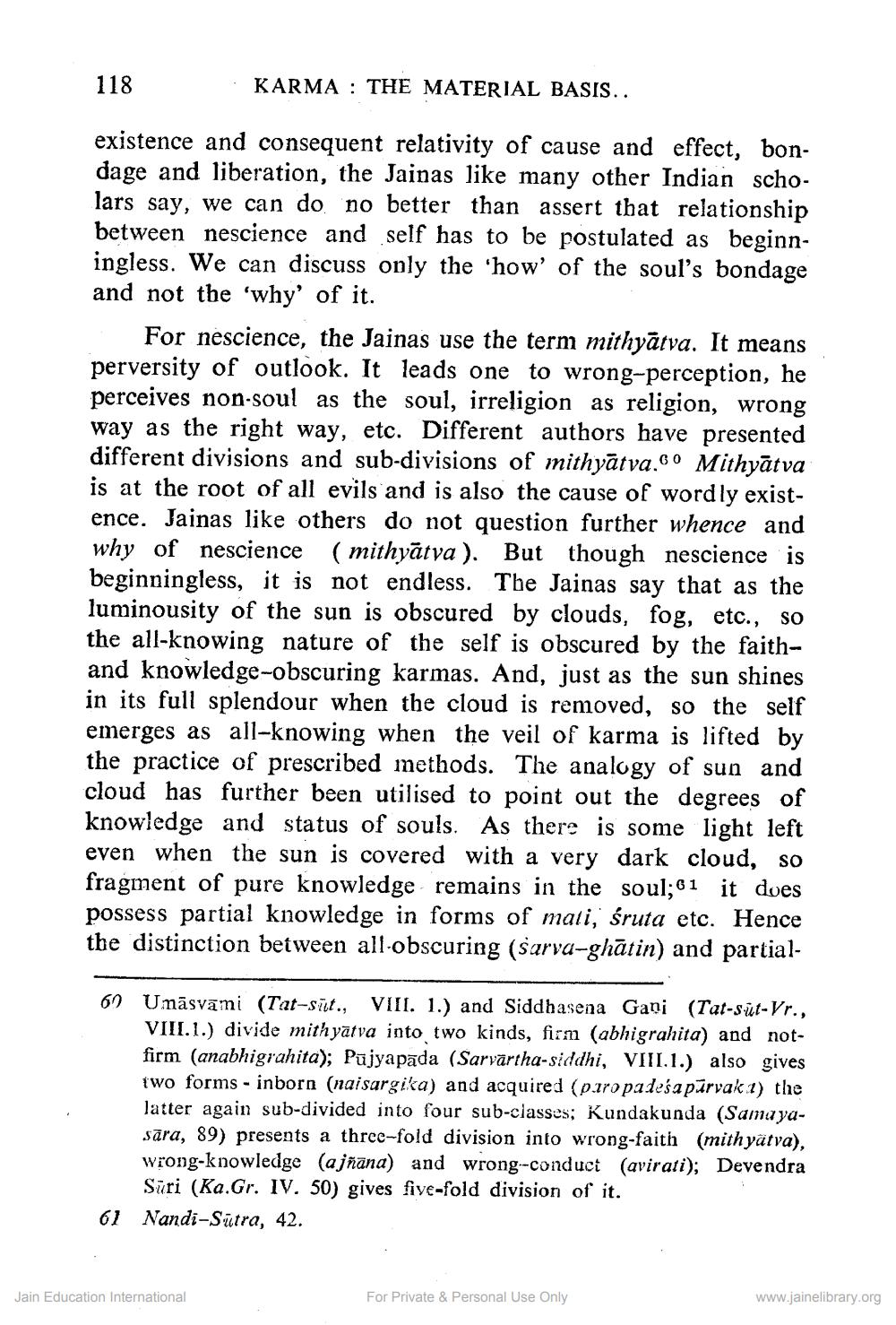________________
118
KARMA : THE MATERIAL BASIS..
existence and consequent relativity of cause and effect, bondage and liberation, the Jainas like many other Indian scholars say, we can do no better than assert that relationship between nescience and self has to be postulated as beginningless. We can discuss only the 'how of the soul's bondage and not the 'why' of it.
For nescience, the Jainas use the term mithyātva. It means perversity of outlook. It leads one to wrong-perception, he perceives non-soul as the soul, irreligion as religion, wrong way as the right way, etc. Different authors have presented different divisions and sub-divisions of mithyātva. 6° Mithyātva is at the root of all evils and is also the cause of wordly existence. Jainas like others do not question further whence and why of nescience (mithyātva). But though nescience is beginningless, it is not endless. The Jainas say that as the luminousity of the sun is obscured by clouds, fog, etc., SO the all-knowing nature of the self is obscured by the faithand knowledge-obscuring karmas. And, just as the sun shines in its full splendour when the cloud is removed, so the self emerges as all-knowing when the veil of karma is lifted by the practice of prescribed methods. The analogy of sun and cloud has further been utilised to point out the degrees of knowledge and status of souls. As there is some light left even when the sun is covered with a very dark cloud, so fragment of pure knowledge remains in the soul;01 it dues possess partial knowledge in forms of mali, śruta etc. Hence the distinction between all-obscuring (sarva-ghātin) and partial
60. Unāsvami (Tat-sūt., VIII. 1.) and Siddhasena Gani (Tat-süt-Vr.,
VIII.1.) divide mith yātva into two kinds, firm (abhigrahita) and notfirm (anabhigrahita); Pūjyapada (Sarvārtha-siddhi, VIII.1.) also gives iwo forms - inborn (naisargika) and acquired (paro padeśa pārvak 1) the latter again sub-divided into four sub-classes; Kundakunda (Samayasāra, 89) presents a three-fold division into wrong-faith (mith yātva), wrong-knowledge (a jñāna) and wrong-conduct (avirati); Devendra
Sūri (Ka.Gr. IV. 50) gives five-fold division of it. 61 Nandi-Sutra, 42.
Jain Education International
For Private & Personal Use Only
www.jainelibrary.org




